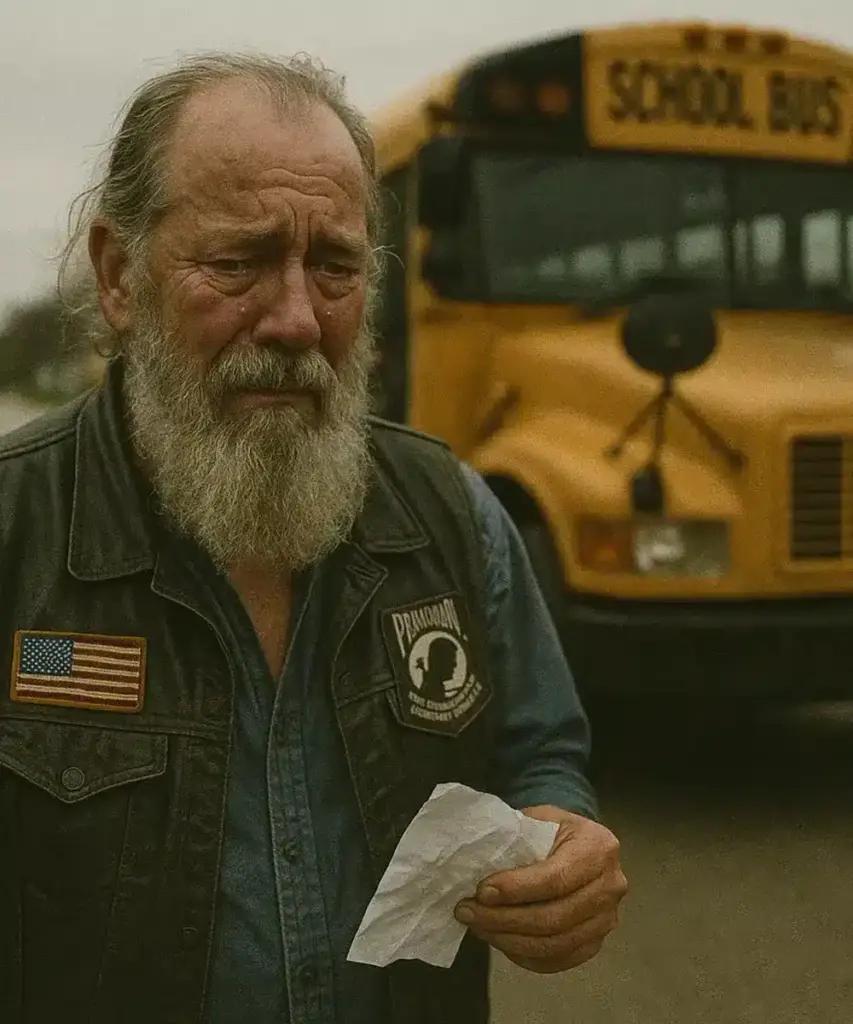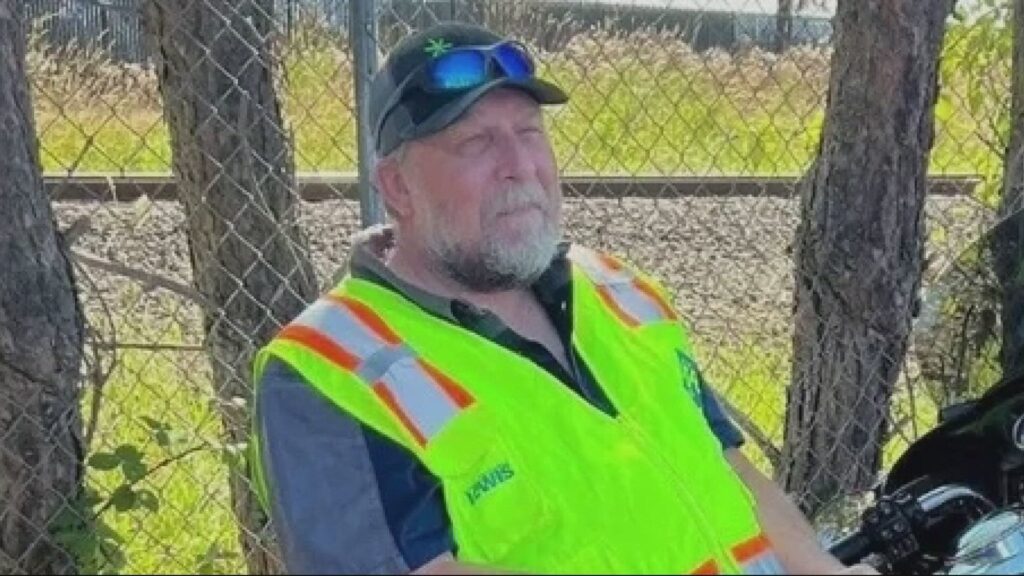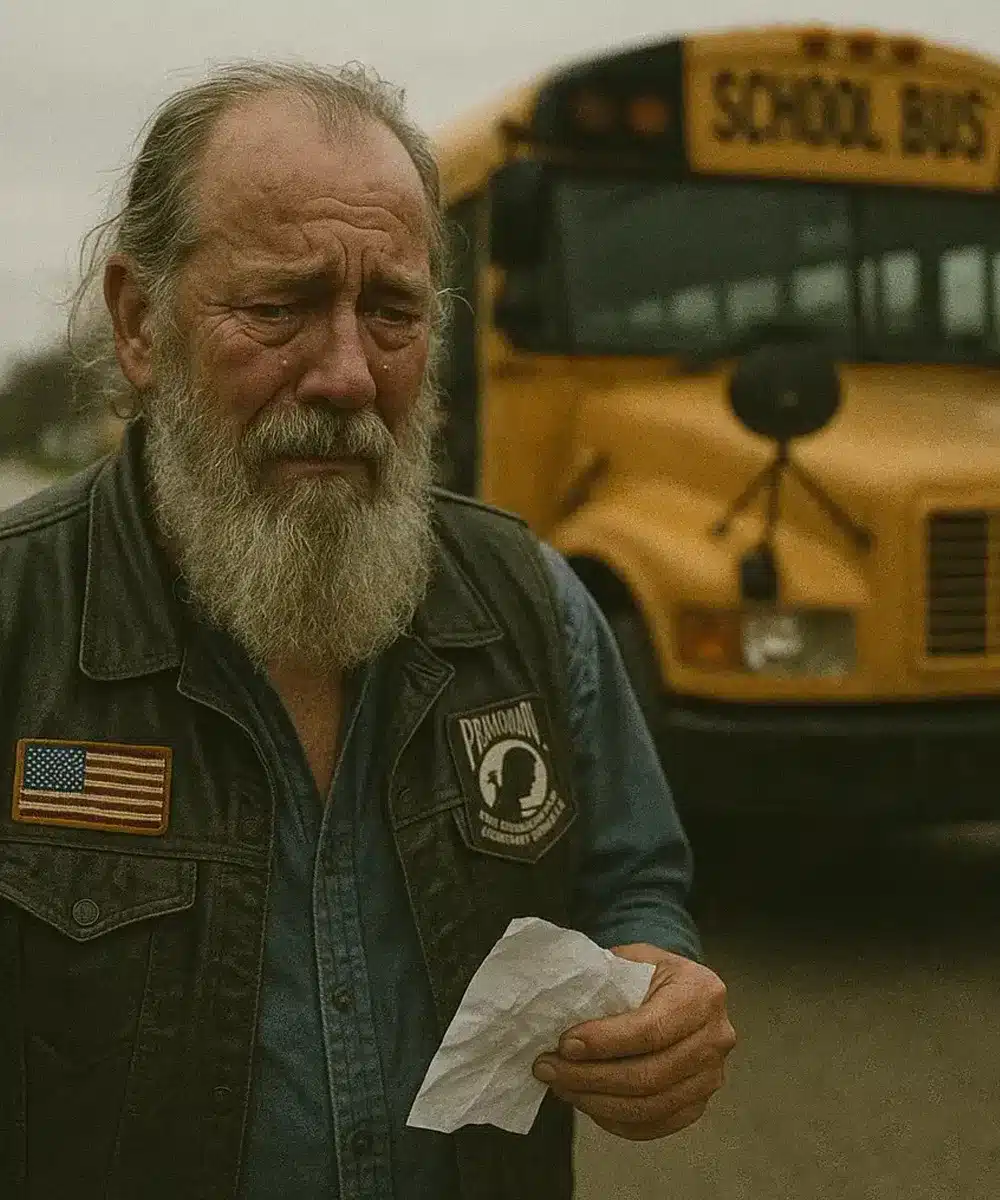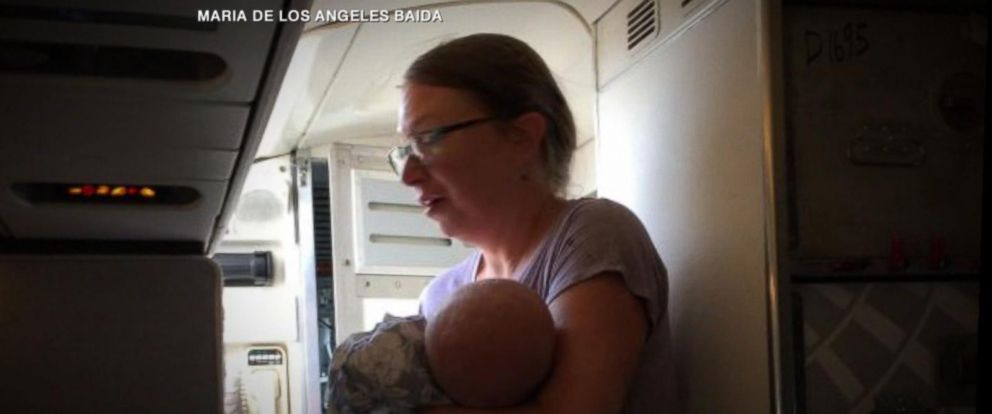Career in Jeopardy Over Leather?Ray Mercer: The Bus Driver They Tried to Cancel—But the Community Fought Back
For 42 years, Ray Mercer wasn’t just the guy behind the wheel of a yellow school bus—he was a beloved presence in the lives of hundreds, if not thousands, of students. To the children he safely ferried to and from school every day, he was more than a driver. He was a protector on wheels, a gentle giant who knew every name, noticed every worry on a child’s face, and always had a granola bar or kind word ready for a kid who looked like they needed it.
Career in Jeopardy Over Leather?

Through rain, snow, and ice-covered roads, Ray showed up—without fail. He once made it through a blizzard so fierce the town nearly shut down, just to pick up three students whose parents couldn’t get them to school. He celebrated birthdays with honks and handmade cards, organized holiday toy drives, and even volunteered to drive students home after late-night band practice or sports events—on his own time.
And outside of school? Ray had a second life that, for decades, never interfered with his work: he was a proud member of a local motorcycle club. But not the kind you see in movies. Ray’s club focused on charity work—organizing toy runs for children’s hospitals, raising money for homeless veterans, and showing up for communities hit by floods and fires.
But one month before his long-awaited retirement, Ray’s life took a sharp, unjust turn.
The Snap Judgment That Nearly Ruined Everything
It all started with a photo.
Ray had spent his Saturday at a charity motorcycle rally, raising funds for a veterans’ medical center. He wore his favorite leather vest—patched with the insignia of his club, an American flag, and a memorial for a fallen friend. Someone snapped a photo of him mid-laugh, chatting with a fellow rider.
That photo ended up on a local parent’s Facebook page.
The caption read: “This man drives our children???”
Within 48 hours, the school board had received a formal complaint accusing Ray of being associated with a “dangerous biker gang.” No questions were asked. No one called Ray to clarify. The principal, despite having worked alongside him for over a decade, called him into the office the following Monday and placed him on “indefinite leave pending review.”
Ray was blindsided. After four decades of dedication, his character was reduced to a leather vest and a Facebook post. He went home that day not as a respected figure of his community—but as someone now painted with suspicion.
Silence, Then a Storm of Support
Ray withdrew from the public eye. The house he’d once filled with laughter and biker memorabilia now felt cold. He didn’t attend the school board meetings or return the principal’s calls. He even considered quietly resigning before his official retirement, too embarrassed to face the parents and children he loved so much.
But someone noticed.

A former student named Melissa Harper, now a journalism major at the local university, caught wind of what had happened. She remembered Ray as the man who made her feel safe when her home life was anything but. He once pulled over during his route just to walk her to the door when he noticed she was scared. When Melissa heard he’d been suspended over a photo, she started digging.
In just a few days, she uncovered the truth the school board never bothered to check: Ray’s motorcycle club wasn’t some outlaw gang—it was a registered nonprofit that had donated over $50,000 to veteran charities in the last five years. Their members included EMTs, firefighters, retired soldiers, and even a local elementary school teacher.
Melissa’s article, titled “The Man Behind the Vest,” went viral. Parents began to speak out. Alumni shared their stories on social media—about how Ray helped them through bullying, how he gave a kid who lost his lunch money a packed sandwich, how he once stopped a fight outside the school before any teacher arrived.
The pressure mounted, and the silence from the school board became deafening.
Redemption—and a Ride Into the Sunset
The community’s response was overwhelming. A petition demanding Ray’s reinstatement gathered over 18,000 signatures. Several local veterans he had supported stood at the next school board meeting wearing biker vests of their own. The narrative had changed—from suspicion to celebration.
Two weeks later, Ray was reinstated.

But the final month of his career wasn’t just a return to routine—it became a full-blown redemption tour. Every day, he drove his bus with pride—and he did it in his vest. He even organized a school-wide bike safety day, bringing in his fellow riders to teach kids about motorcycle awareness, community service, and road safety.
At his retirement celebration, dozens of people—students, parents, veterans, fellow drivers—showed up in leather vests in solidarity. His entire club rolled up to the school in formation, engines humming like applause.
One of the most powerful moments came when a Marine—once a shy, bullied kid Ray used to drive every morning—took the mic.
“You judged these men by their jackets,” he said, looking toward the school board, “but never once stopped to ask about their hearts.”
The crowd stood in thunderous applause.
The Legacy of Ray Mercer
Ray didn’t just retire. He made a statement. He reminded a town—and maybe even a country—that character can’t be judged by a piece of clothing. That loyalty, kindness, and service matter more than assumptions. That being different doesn’t make you dangerous.
He spent 42 years behind the wheel of a bus, but his greatest journey was proving that appearances deceive, and integrity prevails.
Ray Mercer may have parked his bus for the last time, but his story? It’s still driving forward—one student, one ride, and one second chance at a time.





